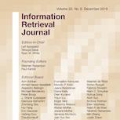
Dense Retrieval Models (DRMs) are a prominent development in Information Retrieval (IR). A key challenge with these neural Transformer-based models is that they often struggle to generalize beyond the specific tasks and domains they were trained on. To address this challenge, prior research in IR incorporated the Mixture-of-Experts (MoE) framework within each Transformer layer of a DRM, which, though effective, substantially increased the number of additional parameters. In this paper, we propose a more efficient design, which introduces a single MoE block (SB-MoE) after the final Transformer layer. To assess the retrieval effectiveness of SB-MoE, we perform an empirical evaluation across three IR tasks. Our experiments involve two evaluation setups, aiming to assess both in-domain effectiveness and the model's zero-shot generalizability. In the first setup, we fine-tune SB-MoE with four different underlying DRMs on seven IR benchmarks and evaluate them on their respective test sets. In the second setup, we fine-tune SB-MoE on MSMARCO and perform zero-shot evaluation on thirteen BEIR datasets. Additionally, we perform further experiments to analyze the model's dependency on its hyperparameters (i.e., the number of employed and activated experts) and investigate how this variation affects SB-MoE's performance. The obtained results show that SB-MoE is particularly effective for DRMs with lightweight base models, such as TinyBERT and BERT-Small, consistently exceeding standard model fine-tuning across benchmarks. For DRMs with more parameters, such as BERT-Base and Contriever, our model requires a larger number of training samples to achieve improved retrieval performance. Our code is available online at: https://github.com/FaySokli/SB-MoE.
翻译:暂无翻译



